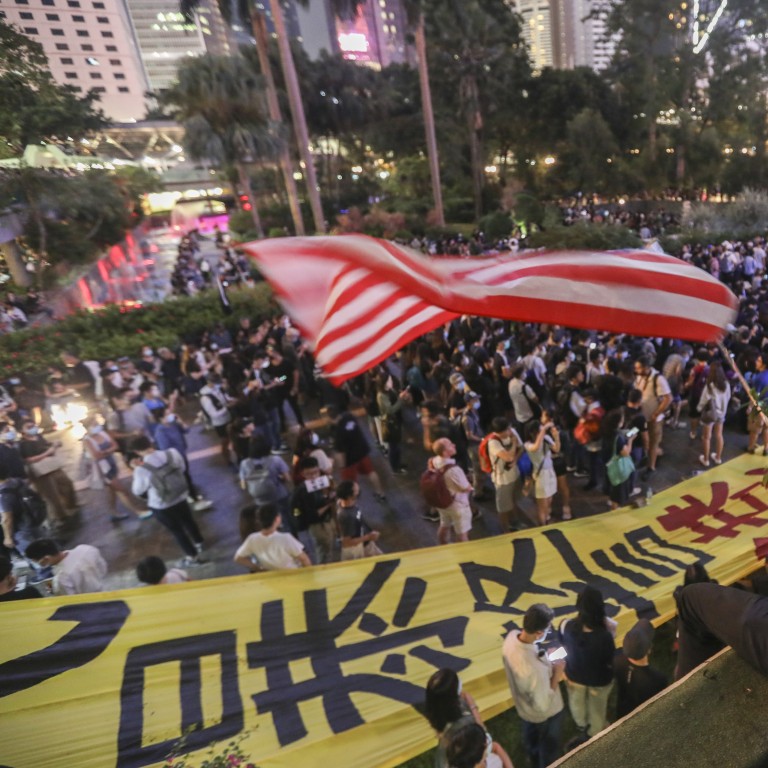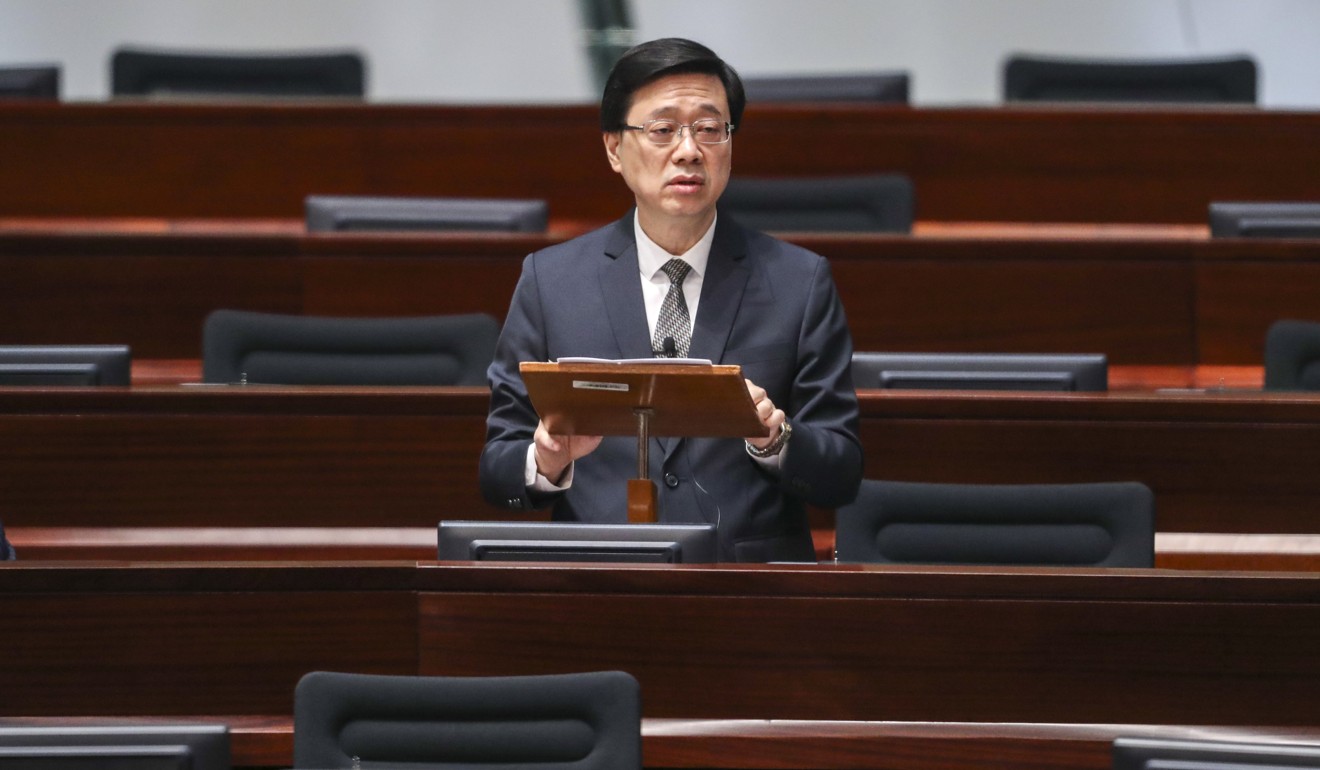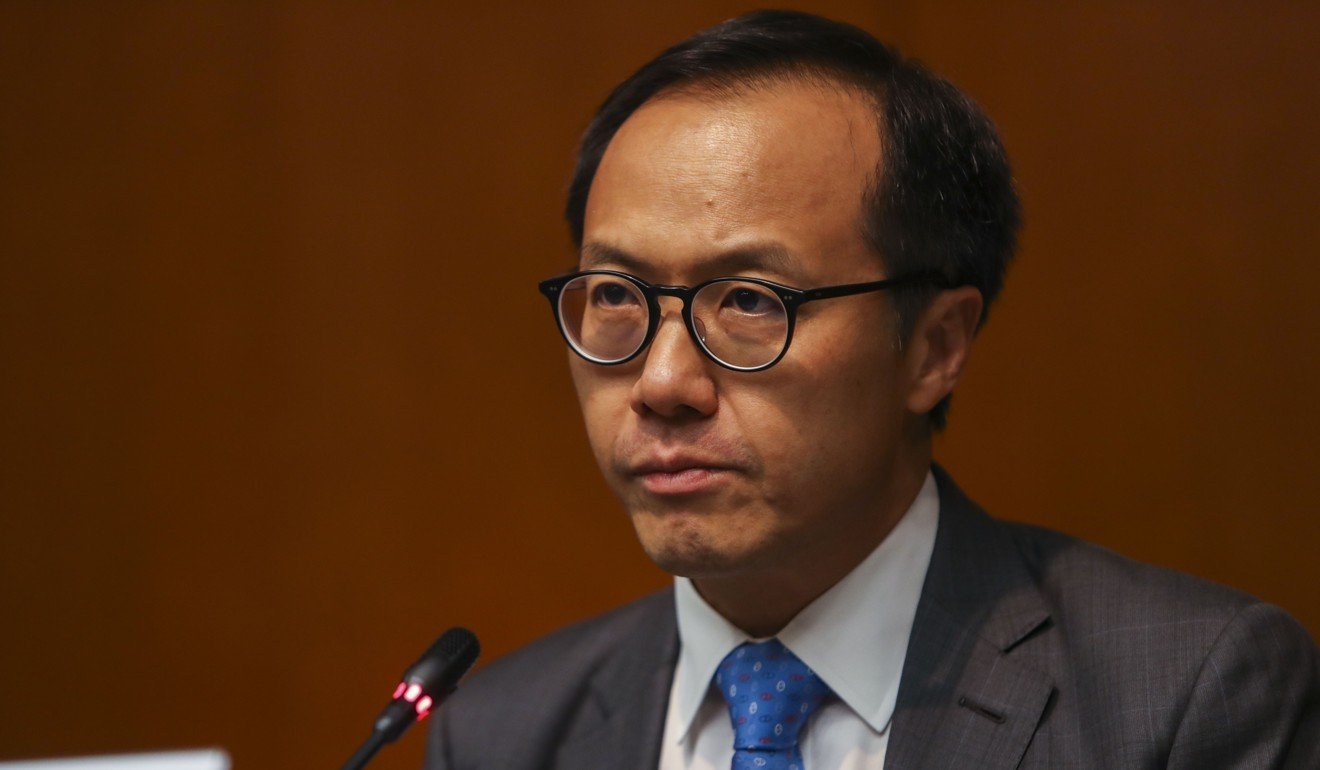
Hong Kong protesters have been receiving training from foreign forces, city’s security chief says, while also revealing more than 3,700 phones were seized and broken into
- John Lee said no evidence linked recent seizures of weapons and bombs to overseas terrorist organisations, but suggested some protesters were not acting alone
- Opposition legislators said making such claims without providing proof was irresponsible
Hong Kong’s security chief raised concerns on Wednesday that some anti-government protesters received training from “non-local” individuals to fuel the social unrest plaguing the city for seven months.
John Lee Ka-chiu became the first top official to go beyond speculation about the involvement of foreign forces to cite intelligence and the well-planned nature of the protests in making the allegation.
He said there was no evidence linking a recent, protest-related spate of weapon and bomb seizures by police to overseas terrorist organisations, but suggested some protesters were not acting on their own.
Lee also revealed police had seized 3,721 mobile phones from protesters in the first five months of unrest and had them broken into to read the contents.

Responding to a pro-establishment lawmaker’s question in the Legislative Council on Wednesday, the secretary for security said: “Based on the rioters’ acts, we definitely believe they received training.”
He did not name any organisation or individual, but said the assessment was based on the government’s investigation and intelligence concerning “how [protesters] were organised” and “the different versions and angles of promotional materials they have”.
“It seems that in every operation or incident, they will plan in advance with a deliberate plot in a syndicated manner,” Lee said. “In terms of resources and mobilisation, we don’t believe that a handful of unorganised rioters could orchestrate such events.”
Nobody should believe Lee’s empty accusation until he can prove his claims
Lee added that online news had also indicated overseas groups were training individuals to join the movement.
Civic Party leader Alvin Yeung Ngok-kiu said it was extremely irresponsible for Lee to make such accusations without proof.
He said the official was no different from former city leader Leung Chun-ying, who claimed foreign interference was behind the 2014 Occupy movement, but “at the end of the day proved nothing”.
“Nobody should believe Lee’s empty accusation until he can prove his claims,” Yeung said.
Pro-democracy lawmaker Kenneth Leung, of the Professionals Guild, accused Lee of making “irresponsible and serious accusations” without evidence.
“I can’t see why creativity demonstrated by protesters has to be linked to overseas training,” he said.
Man who threatened Hong Kong protesters with knife jailed
But pro-Beijing lawmaker Wong Kwok-kin, who is also an adviser to the city’s leader in the Executive Council, backed Lee.
Wong said he was convinced it would be impossible for protests to roll on for months without foreign manipulation.
Lee revealed in the same meeting that police had processed mobile phones belonging to arrested protesters from June to November with search warrants issued by the courts.

“Police will only conduct a digital forensic examination on mobile phones after obtaining court warrants,” he said, dismissing concerns about abuse of power.
Activist Joshua Wong Chi-fung – who was arrested in August in connection with a protest in June – had questioned whether police abused their power by hacking into his mobile phone. He found that some instant messaging records from his locked phone had been admitted as evidence by the prosecution.
Wong said in December he had not given up his password during his arrest. Police clarified that it was conducted under a magistrate-issued search warrant.
Opposition lawmaker Charles Mok called for more guidelines to prevent possible abuse.
“We are talking about [a lot of] phones,” Mok said. “You break into the phones and read the contents, all contents, whether they are related to the cases being investigated or not. And no one can know if the phones will have spyware installed after being seized.”
Icarus Wong Ho-yin, a spokesman for Civil Rights Observer, a concern group, agreed.
“It seems it has now become a casual procedure that officers will seize an arrestee’s phone and check its contents,” he said.
He added the risk of possible abuse was getting higher as police had resorted to making mass arrests recently.
“We have heard of cases of officers threatening people stopped on the street for questioning to hand over and unlock their phones for officers to check the contents, risking arrest if they do not comply,” Wong said.
Meanwhile, the government rejected a suggestion by the pro-Beijing camp to introduce legislation to stop demonstrators from “disguising themselves as online media workers” to make it easier for them to carry out illegal acts.
Secretary for Home Affairs Lau Kong-wah said that, despite suspected cases of protesters impersonating reporters and participating in illegal and violent acts, the government would not define what constituted a media worker with legislation and had no intention of screening journalists’ qualifications to report.
Police seized 3,700 mobile phones during protests, security chief reveals
Meanwhile, riot police applied pepper spray to disperse protesters after a vigil in Sheung Tak Estate in Tseung Kwan O to mark the two-month anniversary of the death of Hong Kong University of Science and Technology (HKUST) student Chow Tsz-lok.
A dozen black-clad protesters laid bricks and other large items on the road outside a car park in the estate where the vigil took place. Officers rushed in to warn participants to leave the illegal assembly, while tear gas warnings were raised.
Several protesters were later subdued on the ground at about 10.40pm and officers fired pepper spray to stop others from getting closer.
Chow fell from the car park near a police operation on November 4 and died on November 8. The circumstances of the death have not been explained.



